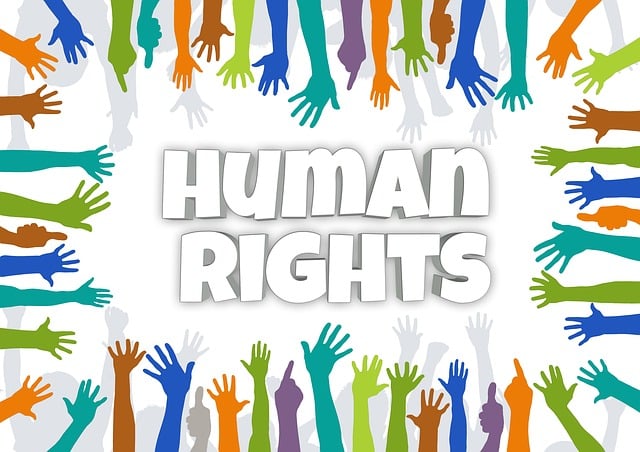Criminal law is experiencing significant transformations driven by societal shifts and technological advancements. Key trends include the integration of data analytics for predictive policing, the rise of specialized legal frameworks for cybercrime, and the need for balanced cybersecurity measures to ensure fair trials. Understanding your rights under criminal law empowers citizens to protect themselves from violations. Technology, such as forensics, biometrics, and data analytics, has enhanced law enforcement but also raises privacy concerns and algorithmic bias issues. Global perspectives offer valuable insights into different criminal justice systems and approaches, aiding legal professionals in tackling complex transnational crimes.
Delve into the fascinating realm of criminal law with our comprehensive guide. From emerging trends shaping modern legal practices to the impact of technology on justice, this article covers it all. We explore essential rights citizens should know and present a global perspective through a comparative study of different jurisdictions. Stay informed about the evolving landscape of criminal law and its profound implications for society. Discover insights that underscore the importance of understanding these key legal principles in today’s world.
- Emerging Trends in Criminal Law: A Deep Dive into Modern Legal Practices
- Understanding Your Rights: Essential Knowledge for Every Citizen
- The Impact of Technology: Enhancing or Complicating Criminal Justice?
- Global Perspectives on Criminal Law: A Comparative Study of Different Jurisdictions
Emerging Trends in Criminal Law: A Deep Dive into Modern Legal Practices

The landscape of criminal law is constantly evolving, with emerging trends reflecting societal changes and technological advancements. One notable trend is the increasing use of data analytics in criminal justice systems. By leveraging big data and artificial intelligence, legal professionals can now predict crime patterns, identify high-risk areas, and even assess recidivism rates more accurately. This data-driven approach allows for more efficient resource allocation and targeted interventions, potentially reducing recidivism and improving public safety.
Another significant development is the rise of cybercrime and its impact on criminal law. With the digital revolution, traditional crimes have taken on new forms, such as hacking, identity theft, and online fraud. This has led to a need for specialized legal frameworks and expertise in cybersecurity. Lawyers are now navigating complex issues related to data privacy, jurisdiction in the digital realm, and the unique challenges posed by anonymous online interactions, all while ensuring fair trials and protecting human rights in the virtual space.
Understanding Your Rights: Essential Knowledge for Every Citizen

In any interaction with authorities, understanding your rights under criminal law is paramount for every citizen. Knowing your rights ensures that your actions are protected and that any potential violations can be addressed promptly. This knowledge empowers individuals to navigate legal situations confidently, ensuring their privacy, security, and fairness throughout any investigation or prosecution.
Criminal law dictates the rules and procedures surrounding criminal offenses and their punishment. Familiarizing yourself with these laws enables you to recognize when your rights are being infringed upon. Whether it’s the right to remain silent, the right to an attorney, or the right to a fair trial, each is crucial in safeguarding against potential miscarriages of justice. By understanding these rights, citizens can protect themselves and actively participate in ensuring that criminal law serves its purpose—to uphold justice while respecting individual liberties.
The Impact of Technology: Enhancing or Complicating Criminal Justice?

In today’s digital era, technology has revolutionized various aspects of society, including the realm of criminal justice. From advanced forensics and biometric identification to real-time surveillance and data analytics, technological advancements have significantly enhanced criminal law enforcement capabilities. These tools enable investigators to gather evidence more efficiently, identify suspects with greater accuracy, and streamline legal processes. For instance, digital forensics can extract usable data from devices, helping to build strong cases.
However, the impact of technology on criminal law is not without its complexities. As new technologies emerge, so do potential loopholes and ethical dilemmas. Issues such as privacy rights, cybersecurity, and bias in algorithms raise important questions that must be addressed. Moreover, the digital divide may exacerbate existing inequalities, ensuring that access to these technological advancements becomes a factor in criminal justice outcomes. Thus, while technology offers immense potential to strengthen criminal law practices, careful navigation is required to ensure fairness and protect individual liberties.
Global Perspectives on Criminal Law: A Comparative Study of Different Jurisdictions

In the realm of criminal law, global perspectives offer a fascinating glimpse into the diverse ways different jurisdictions interpret and enforce legal norms. A comparative study reveals a tapestry of cultural, historical, and socio-political influences that shape criminal justice systems worldwide. Each jurisdiction’s approach to criminal law provides valuable insights into how societies address crime and protect their citizens. For instance, while some countries emphasize retributive justice, focusing on punishment as a deterrent, others prioritize rehabilitative measures, aiming to restore offenders and prevent recidivism.
This comparative study goes beyond mere observation, enabling legal scholars and practitioners to exchange knowledge, identify best practices, and learn from international models. By understanding the global landscape of criminal law, experts can navigate the intricate challenges posed by transnational crimes, such as human trafficking, cybercrime, and organized fraud. Such an approach fosters a more comprehensive and adaptable understanding of criminal justice, ensuring that legal systems remain responsive to evolving societal needs and global trends in crime.
In exploring the diverse landscapes of criminal law through emerging trends, citizen rights, technological impacts, and global perspectives, it’s clear that the field is constantly evolving. As we navigate this complex tapestry, staying informed about these key aspects empowers individuals to understand their rights and engage with the criminal justice system. The interplay between technology and criminal law, in particular, presents both opportunities for enhancement and challenges that require careful consideration. By keeping pace with global developments and adopting innovative practices, the criminal law community can work towards a more just and effective legal framework.
